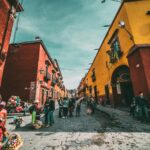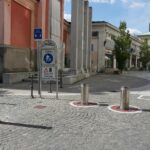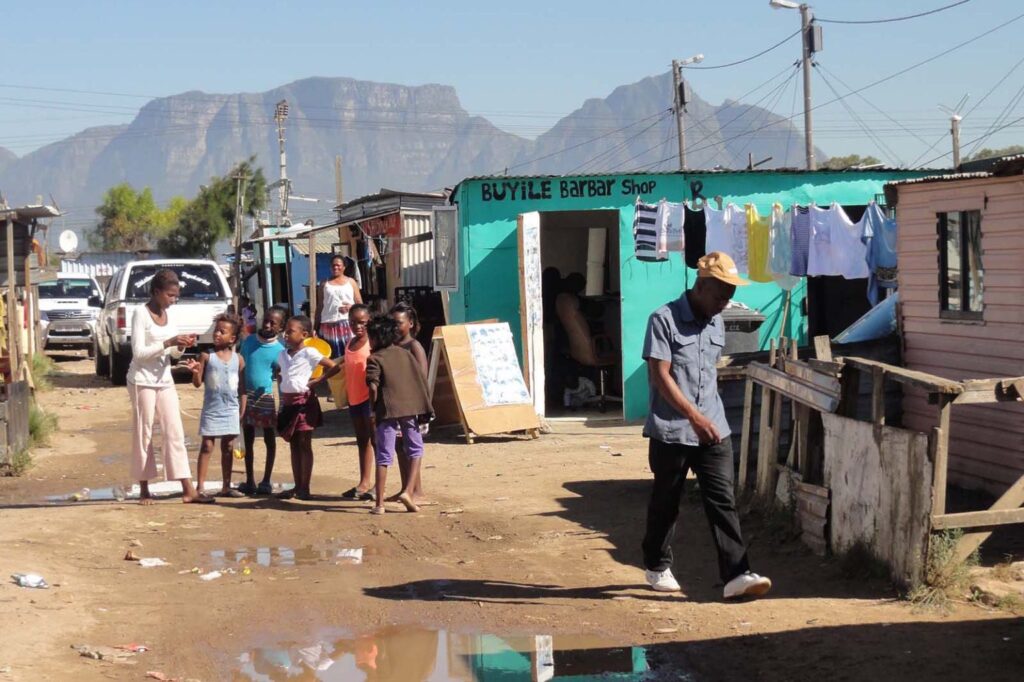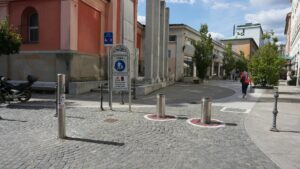Those who hope to reclaim and upgrade spaces in Gugulethu, Cape Town, face a unique set of challenges
At first glance from above, Cape Town is a city surrounded by the sea, a coastal string of beaches, a dramatic green landscape, and landmark mountains. A picture-perfect city setting. On the ground, the city experiences extreme violence, crime and spatial inequality. Fragmented urban form inherited from South African apartheid planning coupled with a modernist design of separation has created fractured, leftover and dangerous public spaces across the landscape of the Cape Flats. Still, multidimensional spaces emerge in Cape Town neighbourhoods. Urban spaces accommodate, adapt and invite a mix of the ordinary, so unique to the context and identity of the city.
Saturday afternoon is pre-match game time and street vendors tend to their chicken-feet and pork braais as the smoke floats across the neighbourhood of Gugulethu. The shebeens (unlicensed drinking houses) are bustling and the crowd spills into the street. Xolile Ndzoyi, an active South African citizen and change-maker, explains the context of this dynamic urban space. ‘Gugulethu means “our pride”, and it speaks of the collective,’ he explains. ‘It is not easy to explain but sometimes people don’t understand that every street, every space in Gugs has an “everyday culture” that involves everyone. These are our spaces of memory from the past 60 years. The jazz, the food and the coming together of people in our co-created spaces are layered with community values and social interaction. We have an opportunity to see things differently with regards to what makes Gugulethu so great. We need to revamp those public spaces to speak to our human behaviour.
The concepts of ‘public’ and ‘space’ in the Cape Town context require a critical reflection on how diverse urban spaces relate to the everyday.
Read the full article here.
Author Kathryn Ewing
Recommended by Luisa Bravo











More Stories
Can public spaces be designed and managed for all in African cities?
Kamwokya Community Center by Kéré Architecture
Creating Great Public Spaces in Three African Cities